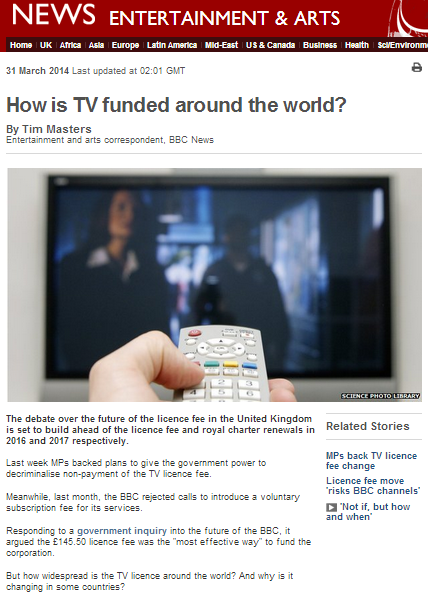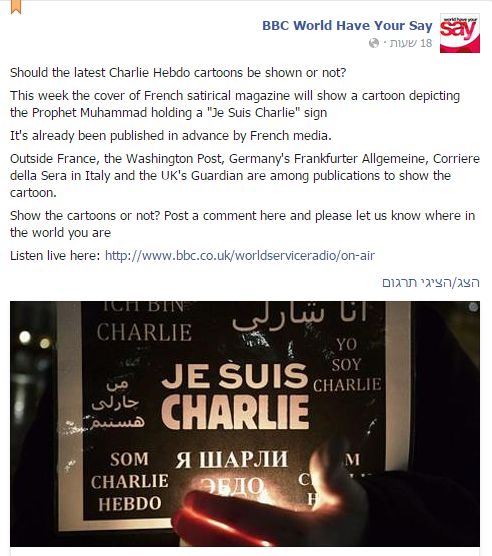March 31st saw the appearance of a rather thinly-veiled ‘you’ve never had it so good’ article on the subject of the licence fee on the ‘Entertainment & Arts’ page of the BBC News website. 
Written by BBC News’ entertainment and arts correspondent Tim Masters and titled “How is TV funded around the world?“, the article actually failed to answer that question with regard to countries which do not employ some version of the TV licence fee or a tax for the same purpose, but did go into detail regarding mostly European states which do.
Readers were not informed how television is funded in countries which have abolished the licence fee such as Australia, Belgium, Cyprus, Holland or New Zealand or in countries (with one exception) which never had such a system such as Spain, Luxembourg, Canada or the United States.
The article opened with a presentation of the BBC’s own stance on the licence fee but no alternative viewpoint was provided.
“The debate over the future of the licence fee in the United Kingdom is set to build ahead of the licence fee and royal charter renewals in 2016 and 2017 respectively.
Last week MPs backed plans to give the government power to decriminalise non-payment of the TV licence fee.
Meanwhile, last month, the BBC rejected calls to introduce a voluntary subscription fee for its services.
Responding to a government inquiry into the future of the BBC, it argued the £145.50 licence fee was the “most effective way” to fund the corporation.”
Once again this article raises issues relating to the use of publicly-funded BBC resources to promote the corporation’s own campaign to keep – or even extend – the licence fee. It also again prompts the question of whether BBC editorial guidelines on impartiality will at some point result in its funding public hearing or reading any alternative views to those on the topic which are currently being vigorously promoted by the BBC itself.
Related Articles:




